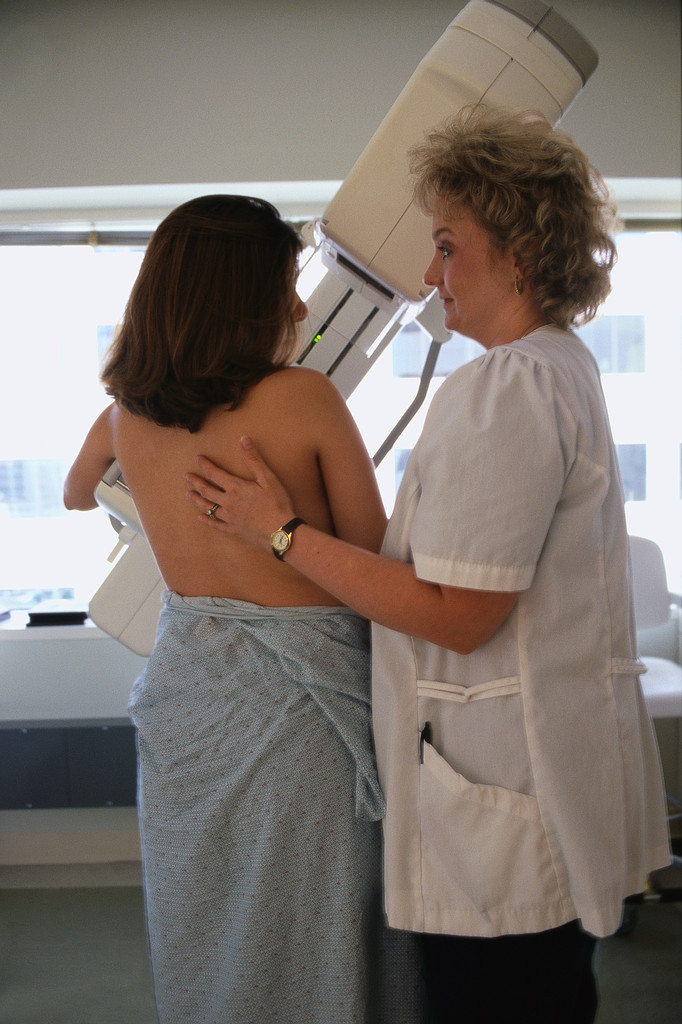Mammograms ironically cause Breast Cancer
----

(Mercola.com) - The U.S. Food and Drug Administration (FDA) secretly monitored the personal e-mail of nine whistleblowers—its own scientists and doctors—over the course of two years. The monitored employees had warned Congress that the agency was approving medical devices that posed unacceptable risks to patients. Six of the monitored scientists and doctors recently filed a lawsuit against the FDA, charging that the agency violated their constitutional rights to privacy by monitoring lawful activity in personal email accounts, and using that information to harass and ultimately relieve some of them of their positions. According to the Washington Post: "All had worked in an office responsible for reviewing devices for cancer screening and other purposes. Copies of the e-mails show that, starting in January 2009, the FDA intercepted communications with congressional staffers and draft versions of whistleblower complaints complete with editing notes in the margins. The agency also took electronic snapshots of the computer desktops of the FDA employees and reviewed documents they saved on the hard drives of their government computers." The FDA has declined to comment on the allegations, stating it does not comment on cases involved with litigation. However, according to internal FDA documents obtained by the plaintiffs under the Freedom of Information Act, the agency had asked the Department of Health and Human Services' (DHHS) inspector general to conduct an investigation back in May 2010, stating suspicions that the plaintiffs had improperly disclosed confidential business information about the devices. The HHS inspector general's office found no evidence of criminal conduct, stating the doctors and scientists had legal right to share their concerns with Congress and journalists. Hence no investigation was launched. But the FDA was not satisfied. On June 28 that same year, Jeffrey Shuren, director of the FDA's Center for Devices and Radiological Health wrote that, "We have obtained new information confirming the existence of information disclosures that undermine the integrity and mission of the FDA and, we believe, may be prohibited by law," and again requested action be taken against the employees in question. (Shuren is also the official who oversees mercury dental fillings, which they have been fraudulently referring to as 'silver fillings'. Shuren had promised to make an announcement about
After consulting with general prosecutors, the inspector general declined the second request for an investigation as well. Now the question is whether the agency monitored their employees within legal limits, and whether the purpose of the extensive monitoring was reasonable.
U.S. Senator Charles Grassley doesn't seem to think so, stating that:
"The FDA has a huge responsibility to protect public health and safety. It's hard to see how managers apparently thought it was a good use of time to shadow agency scientists and monitor their e-mail accounts for legally protected communications with Congress."
Although its roots go way further back, the current saga began in 2007, when the plaintiffs, all of whom worked for the FDA's Office of Device Evaluation, claim they began making internal complaints about a dozen radiological devices about to be approved despite lack of proof of effectiveness. The doctors and scientists were concerned that millions of patients would be put at risk. According to the featured article:
-- Three devices risked missing signs of breast cancer
-- One device risked falsely diagnosing osteoporosis
-- One ultrasound device could malfunction while monitoring pregnant women in labour
-- Several colon cancer screening devices employed such heavy doses of radiation that they risked causing cancer in otherwise healthy people
They also recommended against approval of a computer-aided imaging device for breast cancer screening a total of three times. But after the third rejection, a senior manager, Donna-Bea Tillman, suddenly approved the device in 2008. This and much more was detailed in a 2009 letter from an unknown number of FDA employees to President Obama's transition team. In that letter (in which all the signatures were blacked out due to fear of retaliation from the FDA), the authors clearly spell out the need for a complete overhaul of the agency due to deep-rooted systemic corruption at the highest levels.
-- The FDA secretly monitored the personal e-mail of a group of agency whistleblowers for two years. All of the monitored employees worked in the office responsible for reviewing medical devices, including those for cancer screenings and were expressing concerns over several devices. Some of the employees were harassed and/or terminated, and six of them are now suing the agency
-- There’s a lot of compelling evidence that the dangers of mammography are being covered up, and that a Congressional hearing is well overdue
-- While roughly 15 percent of women in their 40’s detect breast cancer through mammography, many other women experience false positives, anxiety, and unnecessary biopsies as a result of the test, according to the data. In fact, a full decade ago, a Danish study published in The Lancet concluded that previous research showing a benefit of mammograms was flawed and that widespread mammogram screening is unjustified.
-- According to the Cochrane Collaboration, for every 2,000 women getting mammography screening over the course of 10 years, just ONE woman will have her life prolonged. Meanwhile, 10 healthy women, who would not have been diagnosed with cancer had it not been for the mammography screening, will be misdiagnosed as having breast cancer, and will be treated unnecessarily.
Comments
There are 0 comments on this post













